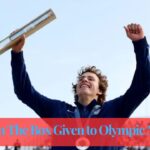Boxing Day, which falls on 26 December, is perhaps one of the most interesting holidays around. It has deep historical roots and modern-day intrigues. Of British origin, it’s celebrated across several Commonwealth countries. On Boxing Day, people take some time to wind down after Christmas; some go about having parties, while others go on shopping sprees until they drop. But Boxing Day is much more than an event following Christmas. It’s more interesting as a fusion of history, charity, sport, and culture.
Explore its origins, customs, and what Boxing Day now stands for in this very informative guide.
Origins of Boxing Day: History
The name “Boxing Day” is curious, conjuring up images of cardboard boxes or even boxing gloves, but it has its roots in early modern European charitable practices. Certainly, there are probably as many reasons to disagree about etymology as there are to disagree on football referees’ decisions, but most academics agree that the holiday revolves around giving to the poor.
Charity and the Church
It’s a tradition dating back to the Middle Ages when churches collected their Christmas alms in boxes. The alms, which were often coins or gifts, were distributed to the poor on December 26th, Saint Stephen’s Day, the feast day of Christianity’s first martyr and one of the patron saints for acts of charity.
A Day for Servants
As the custom gained acceptance in Victorian Britain, Boxing Day became a day of appreciation for employers to show gratitude to their staff. Wealthy households would give their servants a “Christmas box,” containing gifts, money, or leftover food and give them the day off to visit their families.
Gratitude of Tradesmen
Another tradition people have followed for centuries was relating to the tradesmen like postmen and milkmen. Traditionally, these men received Christmas boxes filled with money and gifts as thanks for their work throughout the year.
The earliest recorded use of the term “Boxing Day” is from the 17th century. However, the tradition it refers to is probably much older than that.
Popular Traditions: How People Celebrate Boxing Day
Boxing Day is a much watered-down activity from its charitable days, fitting in the currents of today’s life and culture. The countries would produce different meanings for the day; however, common trends and traditions can be identified.
1. Shopping Galore
It has almost become synonymous with shopping in many countries with Boxing Day, mainly because it is like Black Friday in the United States, where retailers offer massive discounts to attract customers. Crowds flock to stores early in the morning for doorbuster deals, and others are taking advantage of online sales. Many brands have even extended the shopping event into “Boxing Week” in a bid to maximize profits.
Countries like the UK, Canada, Australia, and New Zealand are always at the forefront of embracing Boxing Day sales as one of the busiest days of shopping.
2. Sports Extravaganza
Boxing Day is a super date in the sporting calendar. In the UK, the day is largely known for football matches in all leagues. Traditionally, the matches were composed of local derbies to help keep travel within bounds for teams and supporters, though logistics have recently changed this.
Other notable sports that take place on Boxing Day:
Cricket: The tradition is precious for any cricket fan – the historical Boxing Day Test Match at the Melbourne Cricket Ground in Australia.
Horse Racing: England’s Kempton Park hosts a special race, the King George VI Chase.
Ice Hockey: In Canada and Europe, this day usually marks the start of ice hockey matches, especially the IIHF World Junior Championship.
Yacht Racing: The popular Sydney to Hobart Yacht Race begins in Australia also on Boxing Day.
3. Family and Community Gatherings
Many people consider Boxing Day as the day to take some time with relatives after the hustle and bustle of Christmas celebrations. Families can share some of their time with informal dinners, excursions in the countryside, or even community activities such as charity collections or open hunts.
In Barbados and Bermuda, Boxing Day assumes different forms of cultural events such as Gombey dancers and horse races, giving the celebrations a local flavour.
Boxing Day Around the World
Customs vary by country and reflect distinct local traditions and histories about Boxing Day.
United Kingdom: Beyond shopping and sports, Boxing Day is often filled with countryside fox hunting or, increasingly, its modern analogue called trail hunting. In Scotland, Boxing Day is a public holiday that occurred in 1974.
Canada: Beyond shopping and hockey, some provinces ban retailers from opening on Boxing Day, which forces sales into the night of December 27.
Australia: While shopping in many places, Australians watch the Boxing Day Test or participate in the Sydney to Hobart Yacht Race national event.
South Africa: Known as the Day of Goodwill, it is more about serving the community and giving to charity than it is about a day off.
Ireland: Until relatively recently, Boxing Day was still called Saint Stephen’s Day-a remnant of its religious roots. Some areas still have rural traditions such as a “wren boy” procession.
Boxing Day is recognized as a public holiday with adaptations very specific to the area in other places like Nigeria, New Zealand, and Trinidad and Tobago.
Is Boxing Day Also known as Saint Stephen’s Day?
Although Boxing Day and Saint Stephen’s Day fall on the same date, they are different in tradition. Saint Stephen’s Day is a Christian feast day for the first martyr of the Church. It has more religious observance than secular occasions, especially in Italy, Poland, and Hungary.
However, here in the UK, Canada, and Australia, it has evolved to be a day of charity work, shopping, and sports in large importance.
Boxing Day in the Information Age
The digital revolution has turned Boxing Day into a different dimension. As online shopping sprees are increasing day by day, very few people today stand up and offer to drive through heavy, crowded malls and shops for deals. Today, retailers begin selling online on Christmas Eve as well and thus make sales on Boxing Day reachable through clicks only.
Social media also boosts Boxing Day offers, which increases global enthusiasm for the celebration. Sports matches are streamed live while virtual shopping events and charity campaigns via the web help to make it easy to join in on the fun.
Why is Boxing Day important?
Boxing Day serves as an opportunity for reflection, reconnecting, and rejuvenation amid such a fast-moving world. In that regard, its history becomes a reminder to give back to the community, while its contemporary ways encourage people to celebrate and appreciate the time spent with family and friends.
From the cramped shopping malls to the roaring stadiums, Boxing Day brings the various realms of people together, fusing old traditions with modernistic twists. Whether one spends the day scoring deals, cheering for their favourite team, or simply sipping away in the comfort of a warm home, Boxing Day holds a special place in the heart of this holiday season.
Last Word
Boxing Day, this holiday is so versatile and has changed tremendously since its humble origin. Its enduring appeal stems from its capacity to change with the times, carrying the staple values of thanksgiving and charity.
So, whether you’re observing Boxing Day as a time for charity, indulging in retail therapy, or enjoying its sporting spectacles, remember its deeper roots. After all, Boxing Day is a celebration of goodwill, community, and the spirit of giving — timeless values that continue to resonate in today’s world.








